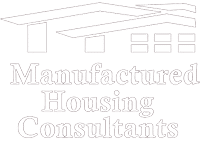The soaring prices of real estate have made it quite challenging for aspiring homeowners to find a suitable and low-priced home in their preferred location. Mobile or manufactured homes are comparatively cheaper and a better alternative to traditional homes. Not only because of the affordability, but these houses are a preferred choice for their small space and the ability to move to another location when needed.
These manufactured homes can be tailored to fit your requirements. And if there’s sufficient space, you can design the interiors however you like. The question is how do you fund a mobile home? While they are pretty affordable, not everyone has the budget to pay the entire purchase price upfront. If you are one of them, we have come up with some mobile home finance options you can consider. Let’s take a look.
Ways to Finance Mobile Homes
Once you have selected a mobile home and a location for it, the next step is to decide on the funding. You can go for traditional home loans, i.e. VA or FHA funding. Or, you can tap into the Fannie Mac and Freddie Mac. The best home finance option comes down to your individual requirements, the repayment duration you are looking for, the interest, processing fees, and other factors. Below we’ve compiled a list of some popular and cost-effective mobile home funding options.
Chattel Loans
Chattel loans are for properties, equipment, automobiles, and heavy machinery that do not qualify for personal loans. These have a relatively higher interest than traditional mortgages and a shorter repayment term. For those having difficulty getting loans for their modular or manufactured home, a chattel loan is an ideal option.
A Chattel loan is a good option for mobile homes, as they accept your application even if you don’t own the land where you plan on locating your house. The shorter term in chattel loans translates into high monthly payments, but that also means you can pay the debt sooner than in a traditional mortgage. Another advantage of this property loan is that it has a comparatively faster and smoother closing process.
Personal Loans
One of the most versatile loans for your manufactured home is a personal loan. It comes with flexible terms and can be used for just about any purpose. They are also a better alternative to home loans since they do not involve a closing cost. However, the interest rate tends to be higher in personal loans, especially if you have a bad credit score. Personal loans make sense for manufactured home buyers who do not have their own land or any kind of collateral, like gold or property, that they can use to secure it. There’s no collateral needed. So, there’s no risk of losing your home if you default on the payment. However, getting approved for this loan requires a great credit history.
VA Loans
Offered by the Department of Veteran Affairs, VA Loans are for active military members, veterans, and their family members. You can secure a VA loan without making any substantial downpayment. These are also pretty versatile financing options. You can get VA loans to fund a modular or mobile home, the land where you’ll be putting this home, and for transferring your existing manufactured home to another location.
You can get a long-term VA loan that’s payable in 15-25 years from the date of borrowing. However, you must own the land or meet the conditions set forth by the Department of Veteran Affairs to qualify for this funding. To be eligible for VA loans, the active members of the veterans must have served in the military for a specified duration.
FHA Loans
The Federal Housing Administration helps low or middle-income group people to secure a loan for their modular homes. The loan type is divided into two categories—Title I and Title II. If you are on a small budget and are just looking to buy a manufactured home, excluding the land, you can use the Title I FHA loan.
Title II is for those who want to buy land with their mobile home. To qualify for this, the mobile home must be at least 400 square feet and meet other conditions of the Federal Housing Administration. The total you can borrow in each type varies depending on your requirements, but the Title I FHA has a strict borrowing limit.
USDA Loans
Offered by the US Department of Agriculture, the USDA loan is another modular home financing option for middle to low-income level people. To qualify for this, your home must be constructed after Jan 1, 2006, and must meet the minimum space requirement (400 square feet).
USDA loans do not require a credit score or a heavy down payment. These are designed for aspiring homeowners in the rural sector. However, eligibility is a bit challenging. You must fall into the mid or low-income group category to secure a USDA loan.
Seller Financing
If you have tried all options, but don’t qualify for any traditional or non-traditional manufactured home loan, your last resort is seller financing. When the property market takes a downturn and the dealers are struggling to find a reliable homebuyer, they might offer seller financing. As the name suggests, in seller financing, the seller agrees to finance the mobile home for the buyer. They don’t ask for the credit score or collateral.
The buyer has to make the agreed monthly payments, in addition to a small interest or the seller’s asking price. The only issue with seller financing is some sellers might charge a higher than the standard interest that you can secure at the conventional bank. Moreover, the seller will need some proof that you will pay back the loan in time, so collateral might be needed in some cases.
Conclusion
These were some popular mobile home finance options. To decide the best loan for your property, identify the type of property you are considering and check your eligibility for each loan. Compare the interest rate, term, and other conditions before finalizing the bank.




